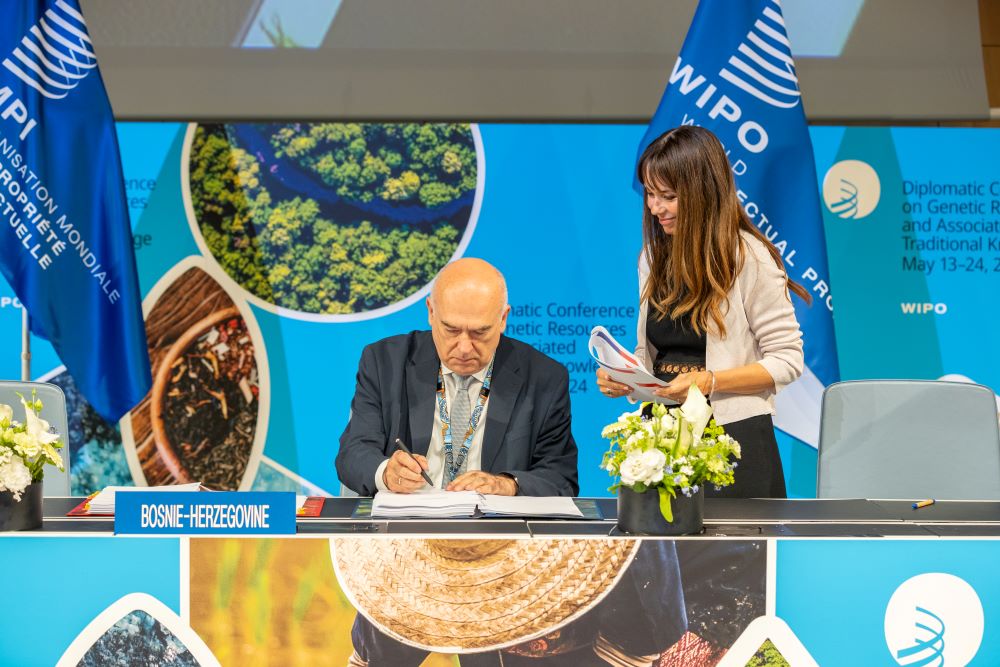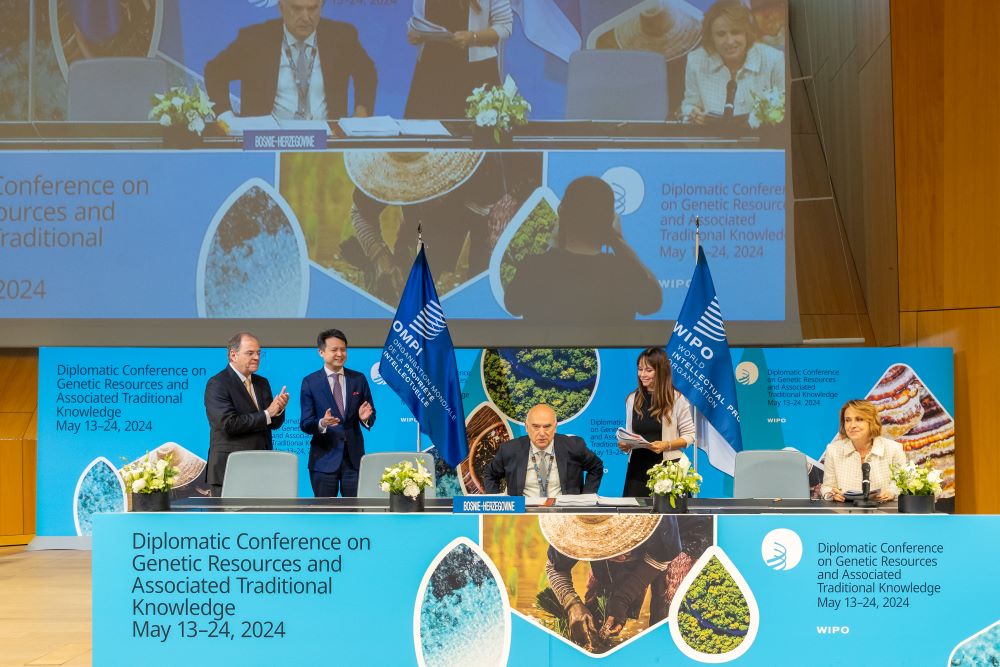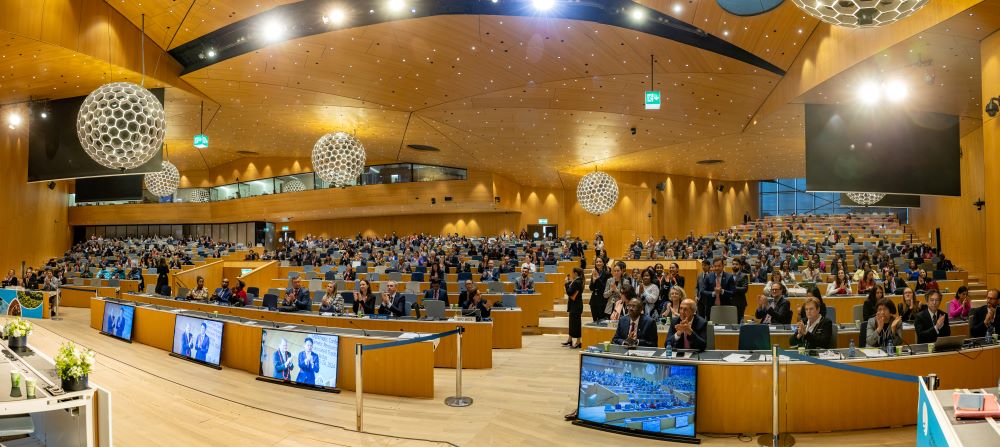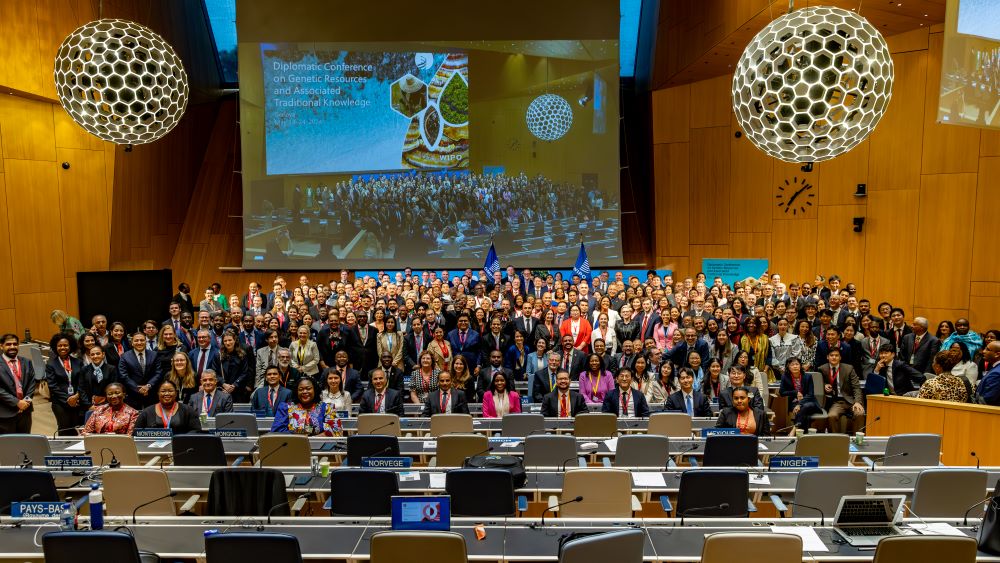WIPO Treaty on Intellectual Property, Genetic Resources and Associated Traditional Knowledge adopted

Geneva, 24 May 2024 - Member states of the World Intellectual Property Organization (WIPO) adopted the Treaty on Intellectual Property, Genetic Resources and Associated Traditional Knowledge at a diplomatic conference in Geneva.
On behalf of Bosnia and Herzegovina, the final act was signed by Josip Merdžo, director of the Institute for Intellectual Property of Bosnia and Herzegovina. Ratification and accession to this treaty will ultimately be realized through a legal procedure in the Parliamentary Assembly of BiH.
After several years of preparations and numerous activities of the representatives of the member countries of the United Nations (UN), who participated in a national capacity, as well as through regional groups, non-governmental organizations and associations of indigenous peoples, the content of an international legal instrument that includes genetic resources and traditional knowledge in the system of intellectual property protection was agreed upon.
The new WIPO Treaty establishes in international law a new disclosure requirement for patent applicants whose inventions are based on genetic resources and/or associated traditional knowledge.
Broadly, where a claimed invention in a patent application is based on genetic resources, applicants shall be required to disclose the country of origin or source of the genetic resources. Where the claimed invention in a patent application is based on traditional knowledge associated with genetic resources, applicants shall be required to disclose the Indigenous Peoples or local community, who provided the traditional knowledge.
This is the first WIPO Treaty to address the interface between intellectual property, genetic resources and traditional knowledge and the first WIPO Treaty to include provisions specifically for Indigenous Peoples as well as local communities.
"Through this, we are showing that the IP system can continue to incentivize innovation while evolving in a more inclusive way, responding to the needs of all countries and their communities," said WIPO Director General Daren Tang, welcoming the adoption of the Treaty and congratulating the negotiators on the successful outcome of the diplomatic conference, held in Geneva from May 13 to 24.
Genetic resources are contained in, for example, medicinal plants, agricultural crops, and animal breeds. While genetic resources themselves cannot be directly protected as intellectual property, inventions developed using them can, most often through a patent.
Some genetic resources are also associated with traditional knowledge through their use and conservation by Indigenous Peoples as well as local communities, often over generations. This knowledge is sometimes used in scientific research and, as such, may contribute to the development of a protected invention.
Negotiations for this Treaty began at WIPO in 2001, initiated in 1999 with a proposal by Colombia, where discussions were notable for their inclusion of Indigenous Peoples as well as local communities.



